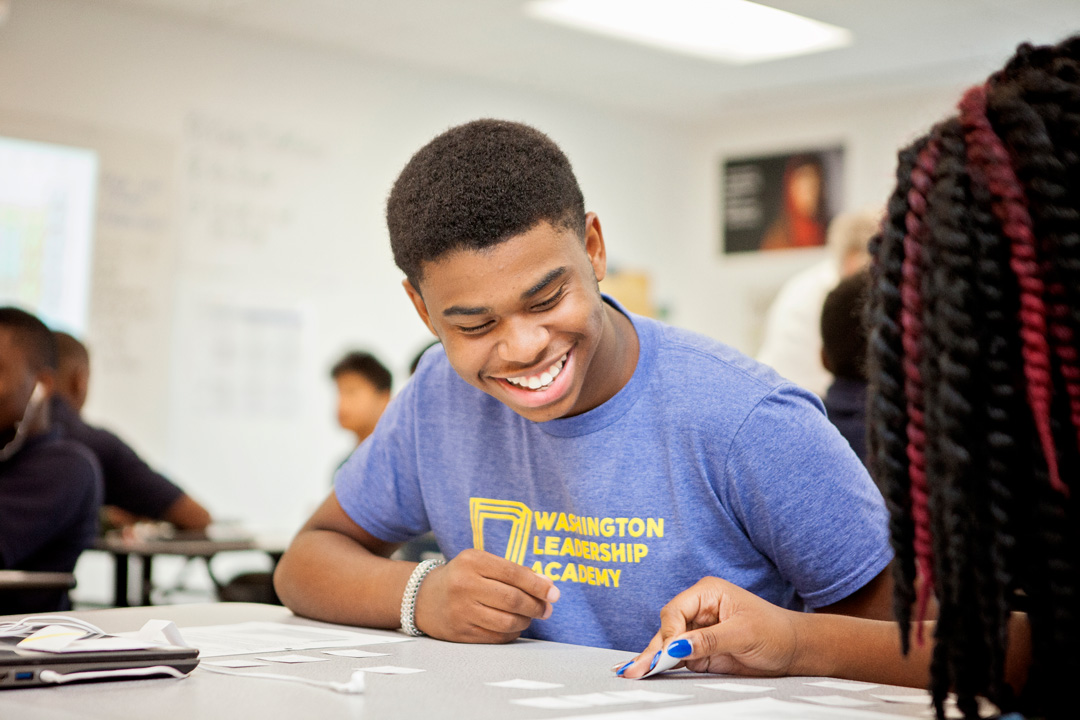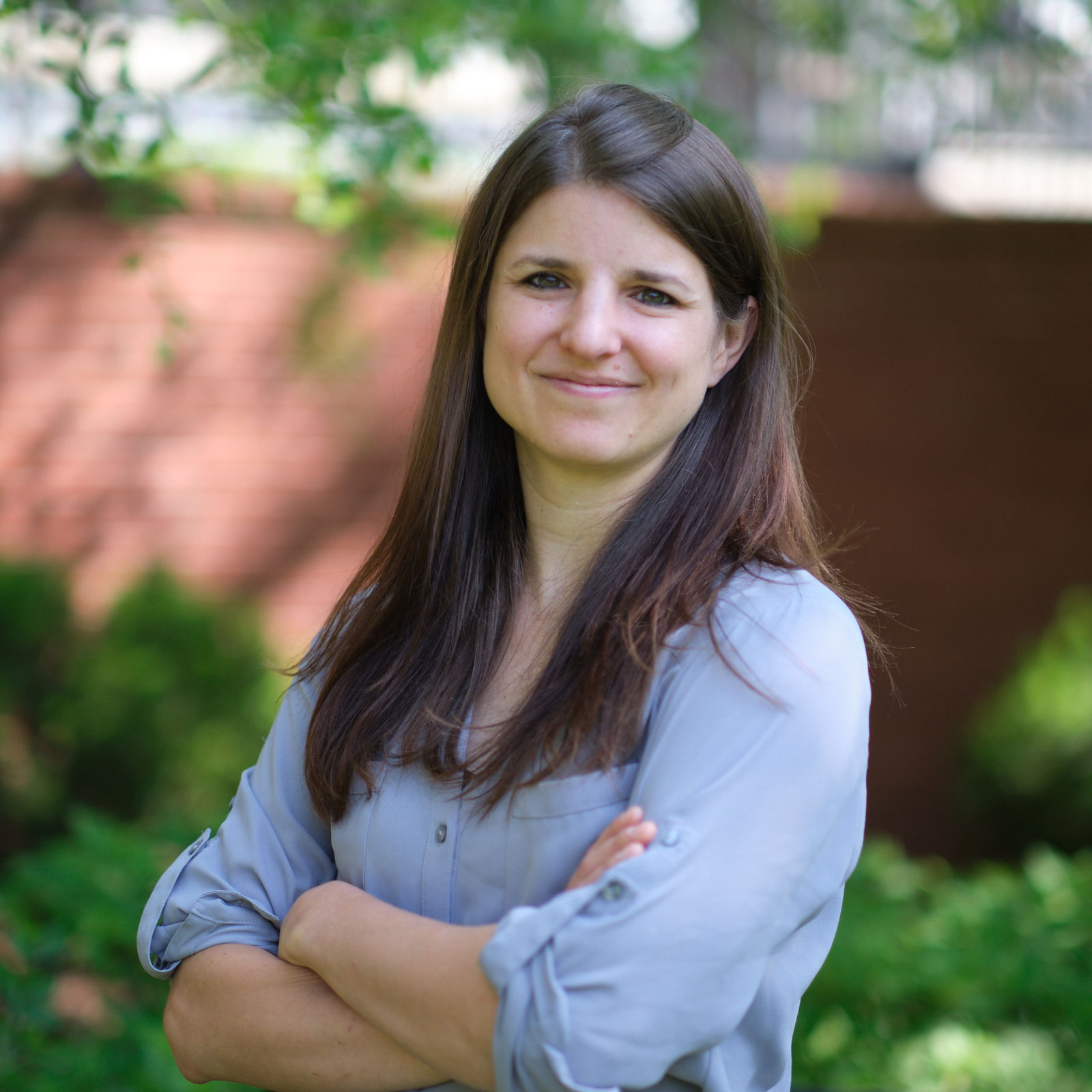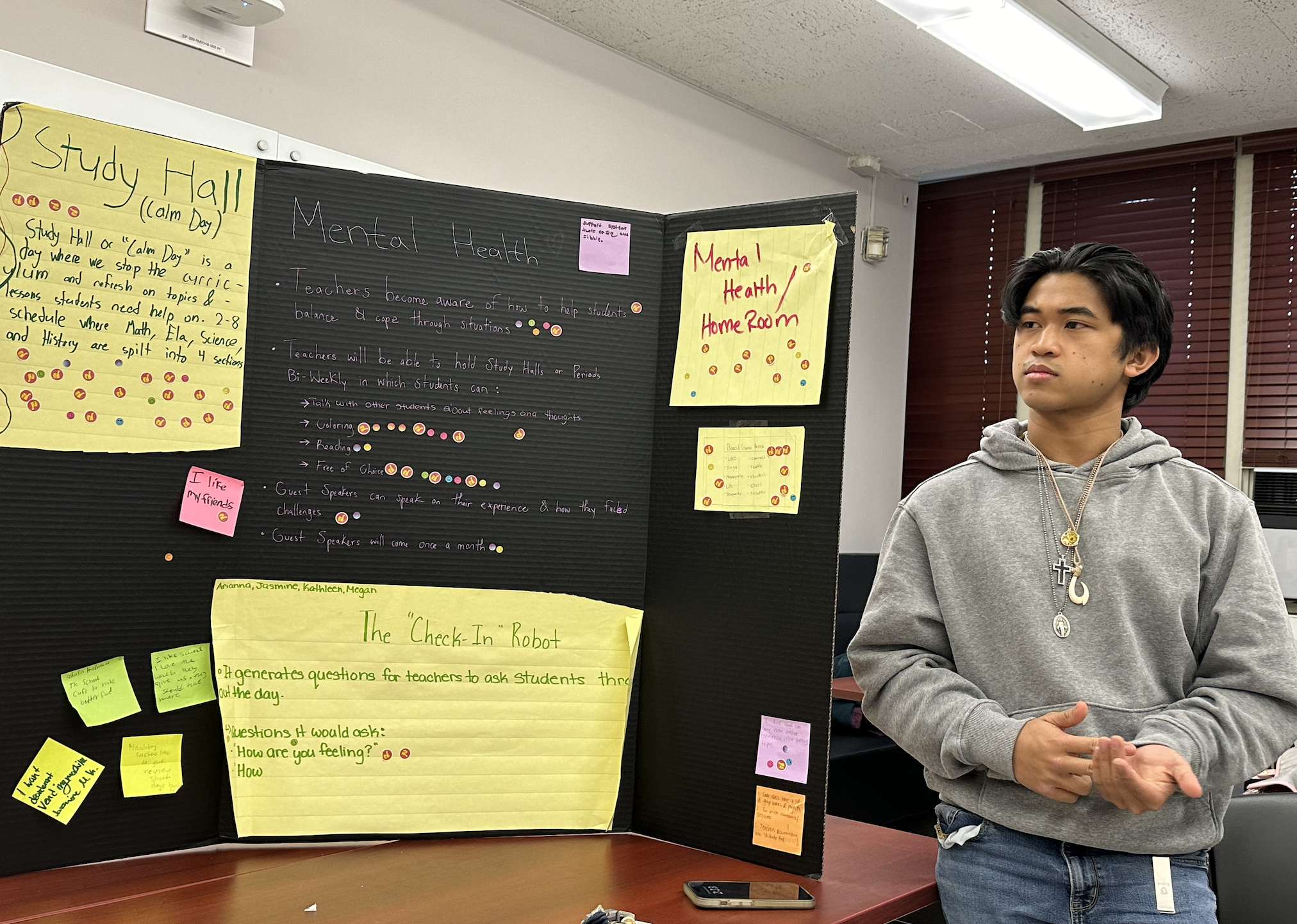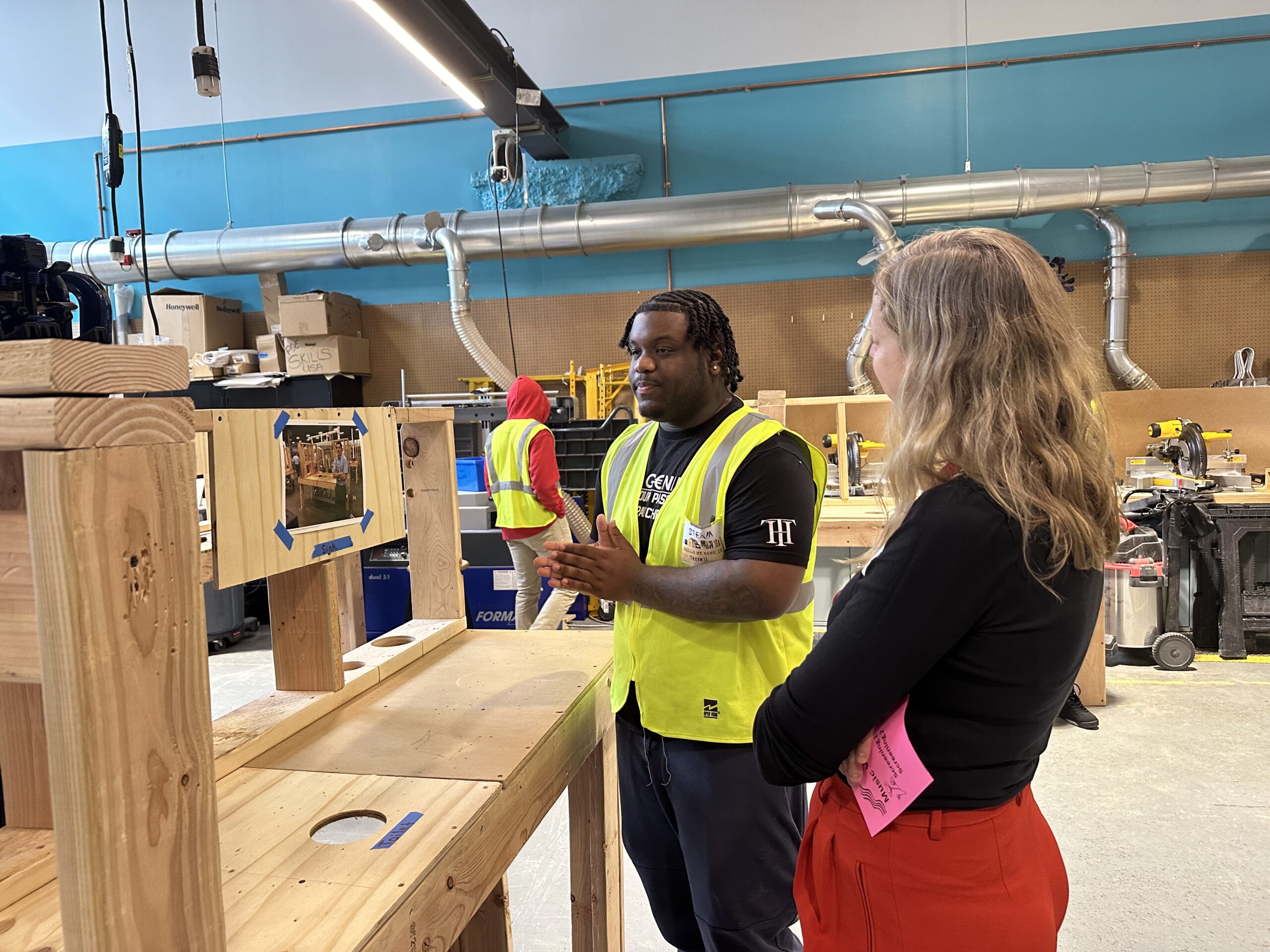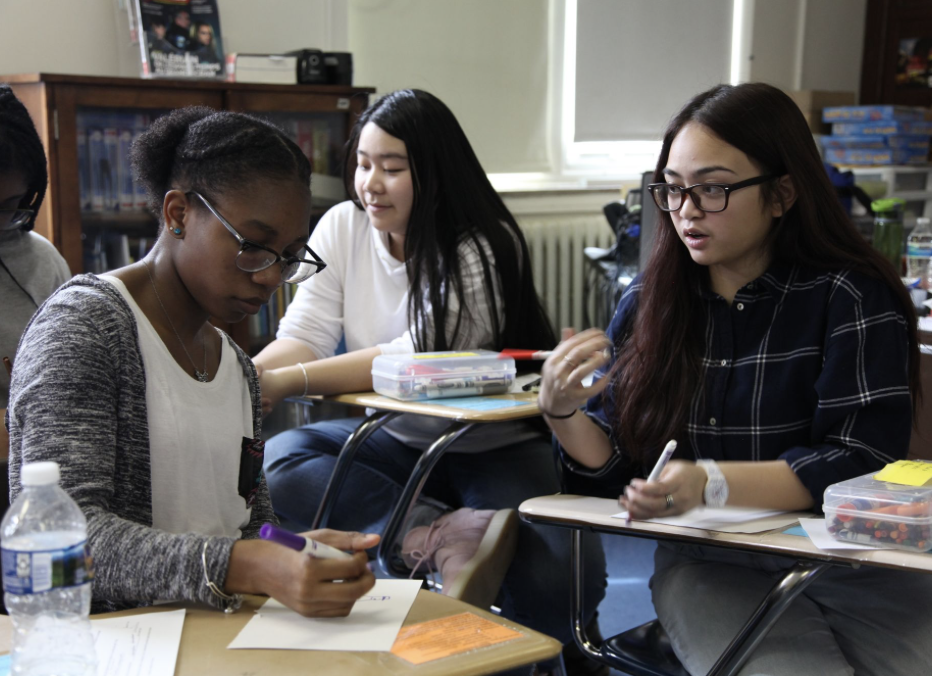Washington Leadership Academy
Washington, DC
See the future. Be the future.
Washington Leadership Academy (WLA) opened in 2016 with a clear vision: to build a school with technology at its core that prepares young people for college and careers, and to grow as leaders delivering positive change.
This strong mission and culture ensure every single one of WLA’s nearly 400 students takes four years of computer science. Students have direct experience with emerging technologies, including computer programming, web design, virtual reality, and a state-of-the-art MakerSpace. And all students have access to internships.
WLA combines civic education, social justice education, and support for students as they explore who they are and where they want to go in life—all with an emphasis on STEM. WLA’s leaders focus on recruiting people of color to consciously and consistently serve as teachers, professional partners, and mentors. This representation helps students of color (who make up the vast majority of WLA’s population) see themselves and their own potential.
The school also encourages connections to its D.C. community. All juniors at WLA are required to complete an internship with a community organization. Examples include robotics, mindfulness, running, advanced coding, DJ basics, and photography, among many others.
“One of the key things that helps us make sure that we are continuing systems of equity is that we have incorporated our stakeholder’s voice, especially those that are marginalized,” said Principal Eric Collazo. “It’s important to empathize and to incorporate the feedback from families, students, and staff members—it helps when people feel they are part of the same team.”
WLA’s founding vision is yielding results. In 2019, it single-handedly tripled the number of Black girls passing the AP Computer Science Principles exam in all of Washington, D.C. WLA received the College Board’s AP Computer Science Female Diversity Award two years in a row for expanding young women’s access to AP Computer Science. Some WLA graduates have gone on to become leaders and changemakers—like Jerome Foster II, an environmental activist appointed to the White House Environmental Justice Advisory Council during President Joe Biden’s administration.
